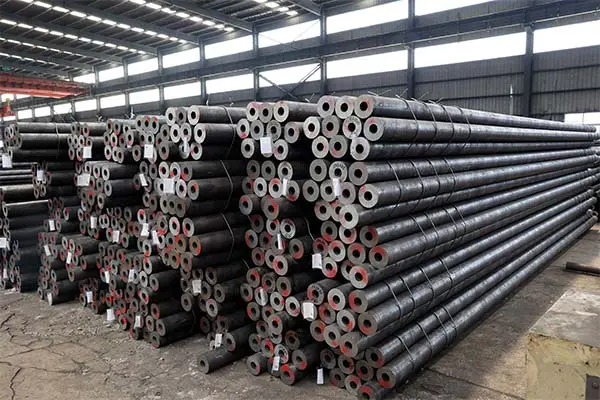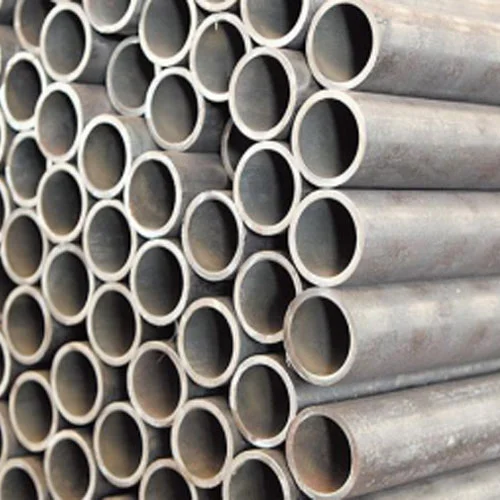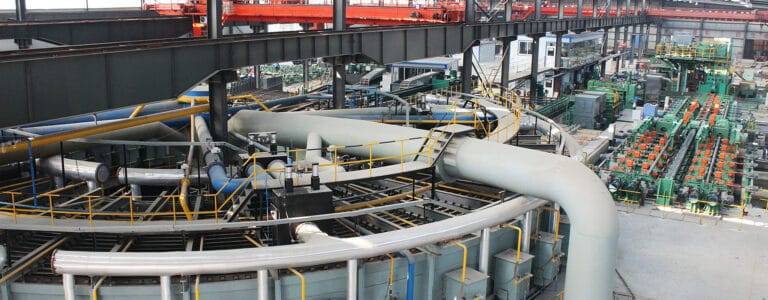Welcome to My Blog!
Before we dive into the content, I’d love for you to join me on my social media platforms where I share more insights, engage with the community, and post updates. Here’s how you can connect with me:
Facebook:https://www.facebook.com/profile.php?id=61559060896490
Now, let’s get started on our journey together. I hope you find the content here insightful, engaging, and valuable.
Table of Contents
Introduction
When it comes to selecting the best pipe for a gas line, safety, efficiency, and durability are the primary factors to consider. Gas lines transport combustible materials, so the integrity of the pipe is crucial for preventing leaks and ensuring proper gas flow. The best pipe for gas line installations not only meets safety standards but also offers long-term performance. This article will explore five critical factors that will help you identify the most reliable pipe for your gas line installation needs.
Material Considerations for the Best Pipe for Gas Line
Durability and Resistance to Corrosion
When selecting the best pipe for gas lines, the material used plays a key role in its durability and resistance to external environmental factors. Pipes for gas lines need to withstand harsh conditions, including exposure to moisture, chemicals, and temperature fluctuations.
- Steel Pipes: Steel is one of the most commonly used materials for gas lines due to its strength and durability. However, steel pipes may corrode over time if not properly coated.
- Copper Pipes: Copper is another material often used in gas line installations. It’s resistant to corrosion but may be prone to cracking under high pressure.
- Polyethylene Pipes: Polyethylene (PE) pipes are flexible, resistant to corrosion, and ideal for underground installations, making them an excellent choice for gas lines in many areas.
Flexibility and Installation Ease
Choosing a pipe that offers flexibility can make the installation process smoother. Flexible pipes reduce the need for multiple joints and fittings, minimizing the risk of gas leaks.
- Flexibility of Material: Flexible pipes like polyethylene and some composite materials are easier to handle and install in confined spaces, making them a top choice for gas line applications in difficult-to-reach areas.
- Ease of Joining: The joining process for gas line pipes should be simple and secure. For instance, fittings for polyethylene pipes are straightforward and easy to install compared to other materials.
Safety Standards and Regulations for Gas Lines
Meeting Industry Standards
The best pipe for a gas line must meet local safety regulations and industry standards. The International Fuel Gas Code (IFGC), National Fire Protection Association (NFPA) codes, and American Society for Testing and Materials (ASTM) guidelines set clear specifications for gas line pipe materials, pressure ratings, and installation procedures. These standards ensure that gas lines are safe for both residential and commercial installations.
- Pressure Rating: Gas lines must be designed to withstand high-pressure levels without rupturing. The pressure rating of the pipe should be clearly marked and meet the requirements set by regulatory bodies.
- Leak Prevention: Pipes for gas lines should be manufactured to prevent leakage. They must pass rigorous testing to ensure they will perform safely in real-world conditions.
Cost-Effectiveness and Longevity
Initial Costs vs Long-Term Investment
While the best pipe for gas lines may have a higher upfront cost, investing in high-quality materials can save money in the long run. Pipes that are durable and resistant to damage or corrosion will require fewer repairs and replacements over time.
- Polyethylene Pipes: While typically more affordable initially, PE pipes can provide significant cost savings due to their durability and resistance to corrosion.
- Steel Pipes: Though steel pipes have a higher upfront cost, their strength and ability to withstand pressure make them a great long-term investment for commercial gas lines.
Maintenance Requirements
Consider the maintenance needs of the pipe material over its lifespan. The best pipe for gas lines should require minimal maintenance while providing maximum safety. Steel and copper pipes, while strong, may require periodic inspections for signs of rust or wear. On the other hand, polyethylene pipes often require less maintenance, especially in areas where external conditions are harsh.
Environmental Impact and Sustainability
Eco-Friendly Options
The environmental impact of gas line materials is becoming increasingly important. Polyethylene pipes are among the most eco-friendly options available, as they are recyclable and require less energy to manufacture compared to metal pipes. Additionally, they have a longer lifespan, reducing the need for frequent replacements.
Energy Efficiency
Gas line pipes should be designed with energy efficiency in mind. Materials that are resistant to temperature changes and external elements can help maintain the gas flow more effectively, reducing energy loss. Choosing the right pipe material ensures that your gas line installation is as energy-efficient as possible.
Comparison Table: Key Features of Gas Line Pipe Materials
| Material Type | Durability | Flexibility | Corrosion Resistance | Installation Cost | Lifespan |
|---|---|---|---|---|---|
| Steel | High | Low | Moderate | High | 50+ years |
| Copper | Moderate | Moderate | High | High | 40+ years |
| Polyethylene (PE) | Moderate | High | High | Low | 50+ years |
Conclusion: Find the Best Pipe for Gas Line for Your Needs
Choosing the best pipe for gas lines involves considering durability, safety standards, cost-effectiveness, and environmental impact. By focusing on these factors, you can make a well-informed decision that ensures long-term safety and efficiency. For reliable gas line pipe solutions, it’s essential to invest in materials that meet or exceed industry standards.
Ready to get started on your gas line installation? Choose the right pipe for your needs today!
FAQ
What is the best pipe for gas lines?
The best pipe for gas lines depends on your specific needs, such as the location of the installation and the required pressure ratings. Generally, steel, copper, and polyethylene pipes are popular options, each offering different advantages in terms of durability and flexibility.
Can I use PVC for gas lines?
PVC pipes are generally not recommended for gas lines, as they lack the necessary durability and can degrade under certain conditions. It’s best to choose materials like steel or polyethylene for gas line installations.
How often should gas line pipes be inspected?
Gas line pipes should be inspected regularly, particularly in areas with harsh environmental conditions. A general guideline is to have them inspected every 5 to 10 years, but it may vary depending on the type of pipe and installation conditions.
Are polyethylene pipes suitable for high-pressure gas lines?
Yes, polyethylene pipes can be used for high-pressure gas lines, provided they meet the required pressure ratings. They are flexible and resistant to corrosion, making them a suitable choice for many gas line installations.
How can I ensure my gas line pipe is safe?
Ensure that the pipe you choose meets local safety standards and regulatory requirements. Regular inspections and maintenance are also key to ensuring the safety and longevity of your gas line installation.




